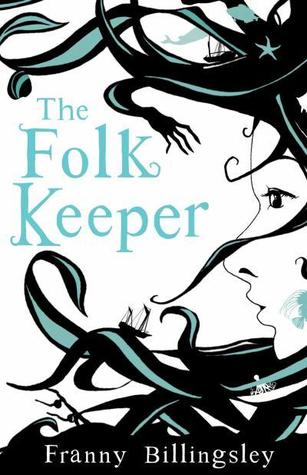is set in a world where humans co-exist with the Folk and the Other Folk. It’s not a peaceful co-existence though. The Folk, who are perennially famished, require a tithe from the humans to let their cattle and crops alone. And the indigenous Other Folk, with their magical abilities, create havoc of their own from time to time.
The Folk Keeper’s job is to help keep the status quo by overseeing the tithe. Corinna Stonewall, disguised as a boy at the beginning of our tale, is one such Folk Keeper. She has lived a hard life, and is angry, , at the world. It is no wonder then that she is so prickly, always on edge, and wants so desperately to be special, to have some power over those that have hurt her.
I’ve read Billingsley’s C before, and it. Billingsley always manages to give a haunting description of broken heroines, who despite their surmounting odds, manage to find courage and confidence enough to overcome those. And self-esteem is the message to Corinna in Folk Keeper too.
The moment Corinna stops hiding in the shadows, the moment she can be herself, that’s when she will find happiness. The test for Corinna comes up when she is asked to switch her Folk Keeper role from the foundling home in the sooty cemented city, to a seaside village. The Folk at the seaside village are hungrier and more violent, and the Sea Folk there (~Other Folk) also stir mischief. The estate desperately needs a Folk Keeper and Corinna agrees.
She is helped along the way by the villagers (who are much kinder), the deceased estate owner’s stepson Finian (who is adorably sea-mad), the hill hounds (who have descended from more ancient roots but whom Corinna manages to tame and even love), and the deceased Lady Rona (whose secrets are key to Corinna’s journey). There is a very human villain too: I will admit his villainy is quite predictable and cardboard-ish, but he too is very important for Corinna to reclaim her true identity.
The book is in the form of diary snippets recorded by Corinna. Ordinarily they annoy me, because I think this format is more passive and one-sided. But here, Corinna’s snarky, matter-of-fact but poetic (yes, it can be all of these things) way of recording events was fascinating. Overall, it reads like a folk tale, similar in many ways to Patricia McKillip’s lyrical cozy fantasy writing. For example:
“The beach has a language of its own, with its undulating ribbons of silt, the imponderable hieroglyphs of bird tracks. The receding waves catch on innumerable holes in the sand. Bubbles form and fade. A new language, with a new alphabet, which I will learn to read.”
I want to add here that I couldn’t quite pin down the age of the intended audience. It’s marketed as a book for young readers/ middle grade. But through the course of the book, Corinna turns significantly older and wiser: a “”. Perhaps this difficulty in age rating is the reason why the book is not better known? I feel it could have been promoted better.
I’m glad I picked it up from my TBR pile. It’s a very quick read (3-4 hours?), more like a novella, and quite enjoyable.
Rating: 7.5/10

